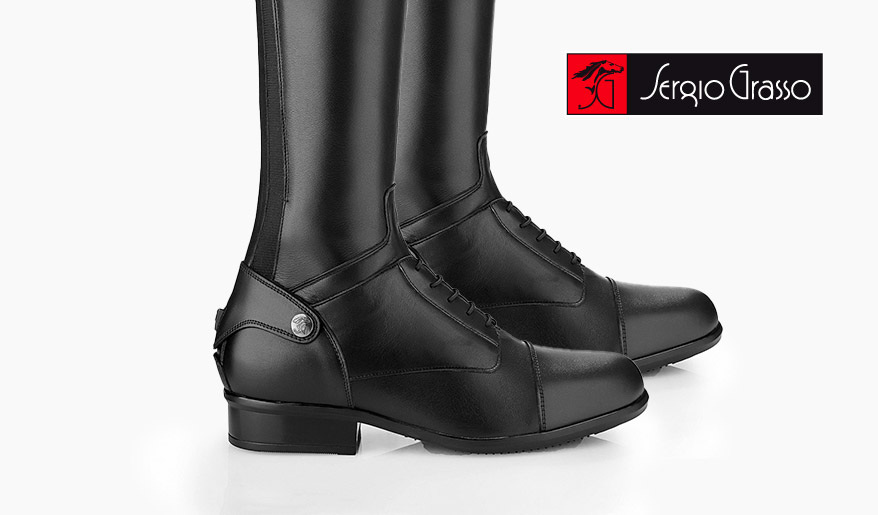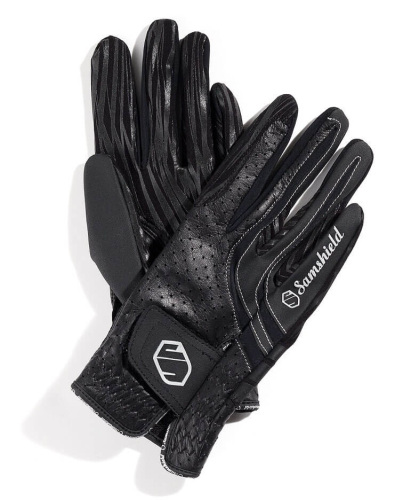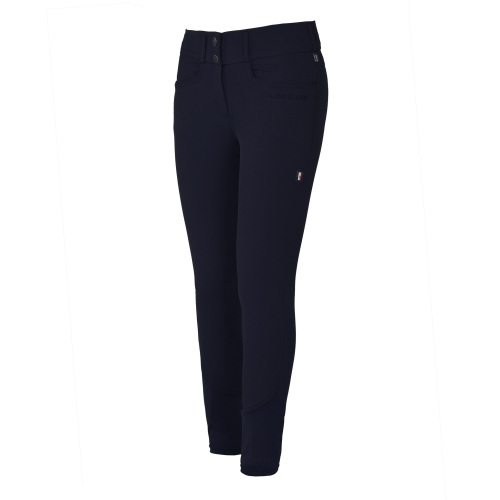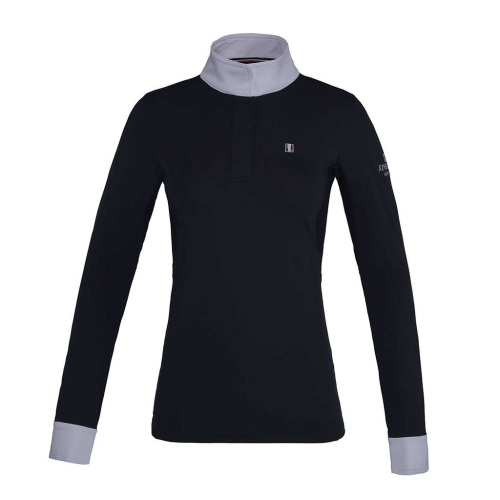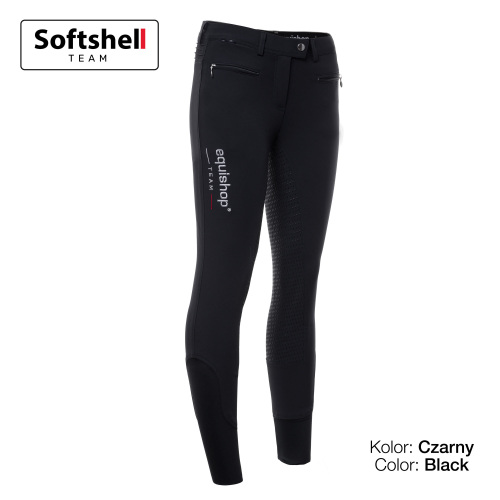 Source: uky.edu
Source: uky.edu
We associate summer, most of all, with sunny weather and relax. However, trying to look at it from the horse's point of view, it is the most tiring time for them - more rides, trainings, starts, usually on hot and windless days. That is why we decided to reveal to you our 10 commandments, which are worth obeying so horse riding would always be safe both for you and your horses.
1. Watch your horse.
If you pay attention to your horse - either while training, grazing, in a stall or while traveling to a competition arena - you can catch the first symptoms of overheating (hyperthermia). When the temperature rises over 30 Celsius degrees it becomes dangerous. You have to keep in mind that some horses can bear massive changes of the temperatures, e.g. Polish horses - from -20 degrees in the winter to 35 degrees in the summer (sometimes even more) - so it is a change of 50-60 degrees within a year! So, as you can see, some horses can adapt and survive such conditions, but they need time to get used to such changes. A sudden rise of the temperature may cause bad general sensation - people are way more adjustable to weather changes. So pay attention and make sure to give your horse enough time to adapt if there is a sudden temperature change. Resign from a training, if the temperature has risen of a dozen or so degrees over a day (e.g. from 20 degrees to 35, or from 15 to 28 degrees). Then try to have a short training, where the proper work would last for 10-15 minutes, adding at least 10 minutes to the start and 10 minutes to end the training at a walk. Remember that at the end you can even lead your horse from hand, preferably in some shaded place. It would be no relax for your horse if after the proper work you would make him walk in the sun and additionally with your weight on his back.
 Source: vousnousils.fr
Source: vousnousils.fr
What should you pay attention to while watching your horse? For clear symptoms of him being tired - stumbling a lot while moving, more breaths taken or spider veins on his nostrils. Excessive sweating would be an obvious reaction of the horse's organism to the high temperature, so if your horse is not sweating, it might mean that he is suffering from anhydrosis, namely diminished sweating, which is the very basic method of thermoregulation for most mammals. If it's very hot and your horse is not covered with sweat during or after physical effort, you should immediately take your pet to an airy and shaded place, then cool him down with water starting from his limbs. Alternatively, you can put wet towels on him instead of pouring water (do not put them on his croup and flank). Also, give him water to drink - often but in small quantities. If after a dozen or so minutes of such treatment you still cannot see any improvement - your horse still looks weak, you should immediately contact a veterinarian.
 Source: derby.experiences.com
Source: derby.experiences.com
2. The rider is as equally important as the horse.
We tend to forget about ourselves in the summer. The horse is important and obviously we need to take care of him, but we cannot forget about ourselves. Headgear between the trainings or while being in the stable, when you're not wearing a helmet is a necessity. There are many caps with visors available on the market, so surely you will find something you'll like.
 Pikeur Micro 3D cap
Pikeur Micro 3D cap
You should also remember that as riders, we drink too rarely. We remember about cooling and hydrating our horses, but not ourselves. Dehydration causes bad general sensation, nausea, dizziness, too low or too high blood pressure, sometimes even blackouts. Thus, try to always have something to drink at hand - preferably not a regular bottle water (clear water will just "go through" your organism not hydrating it, even if you would drink a lot of it), but water with a few drops of juice or an isotonic beverage, which will provide you with the necessary minerals.
If you're not feeling well, you should stop the training, if you're on the horse - get off him and give your horse to somebody near you, then go to a shaded place, where you should take off your helmet and unbutton your shirt under the neck.
Do not compare yourself to others! Resilience to high temperatures is a very individual matter of each organism, so to continue the ride because "others can do that" is a very irresponsible thing to do. Reacting to early symptoms may protect you against sunstroke, which is dangerous to your health and life.
3. Avoid the heat.
While planning your trainings, try to choose early mornings (before 8am) or late evenings (after 7pm). The hours between 11am and 4pm are not suitable for trainings, as the heat is even more bothersome - insects, hot air, full sun are not the best conditions to work with a horse. If you have troubles waking up in the mornings, try setting the training as late as possible - most horse riding centers have proper lighting of the manage, the sun sets late in the summer, so trainings at 7pm should be possible.
.jpg) Source: maspretel.com
Source: maspretel.com
4. Be responsible, winning is not everything
Competition shouldn't be the time when the only thing that counts is the start. If you have planned the start a few weeks in advance, and after you get there it turns out that on the day of the competition the temperature would be high - rethink your involvement. Is it so important that you're willing to risk your horse's health? If you decide that it is, you should:
- try not to leave the stable too early to enter the warm-up arena - in such conditions your horse will warm-up very quickly and it makes no sense for you two to wait for the start in the sun;
- not warm your horse up for too long, so you won't tire your horse even before he enters the competition;
- take your horse into a shaded place and let him drink between starts;
Remember about yourself: drink as much as possible! Also, ask the jury if they would allow you to start without the show jacket - elegance is important, but riding with an additional layer of clothing on a hot day, even for a couple of minutes, if dangerous to the riders' health.
If your horse doesn't have access to an automatic drinker in the stall (e.g. in a tent stable), try to provide him with constant access to fresh water.
 Busse D-form bucket will be perfect to put it in a stall due to its durable handle.
Busse D-form bucket will be perfect to put it in a stall due to its durable handle.
Also, remember about your horse while traveling! If you have troubles providing your horses with access to water, you should make as many stops to let them drink as possible.
 Busse Flexi bucket will be perfect in transport as a container for various items. It is light and big, which will also allow you to quickly hydrate your horses.
Busse Flexi bucket will be perfect in transport as a container for various items. It is light and big, which will also allow you to quickly hydrate your horses.
 Transhorse Aquabag TH - water container, which you can easily take on a journey.
Transhorse Aquabag TH - water container, which you can easily take on a journey.
5. Don't be afraid to cool down!
After every training - when you get off the manage, cool your horse down. Remember to start from his limbs and move upwards to the shoulder blades and the belly, do not cool his croup and flank. Do it slowly and gradually, never with ice cold water!
 Source: nikonusa.com
Source: nikonusa.com
6. Watering is always recommended.
Some say that you cannot give your horse water right after a training, when he's still warmed up. It is not true - if you're dealing with the heat, and your horse has cooled down a little after a training, it is recommended to give him water that would be not too cold and in very little dose. So give your horse some water in a buckle, making sure that he takes only a sip or two. It is not recommended to lead your horse back to his stall, where he has an automatic drinker and could drink uncontrollably. Water your horse gradually after a training, letting him sip every couple of minutes or so out of a buckle. When your horse has cooled down and his parameters are back to normal - breath and pulse - you can let him go back to his stall with unlimited access to water.
 Small Busse foldable bucket will allow you to water your horse with small amount of water after a training or between starts.
Small Busse foldable bucket will allow you to water your horse with small amount of water after a training or between starts.
7. Choose the right equestrian equipment and clothing.
You should have a good cap with visor in your summer equipment, which we mentioned already. Other than that, it's worth investing in clothing that will help you survive such weather - airy T-Shirts, shirts, helmets, gloves and breeches are the very basics. It's good to choose products from trusted producers that make sure their products will work properly in high temperatures, draining moisture to the outside and allowing for proper air circulation.
 Properly ventilated safe helmet Samshield XC-J Carbon
Properly ventilated safe helmet Samshield XC-J Carbon
8. Summer tan - mind the UV radiation.
Beautiful even tan is a wish of every vacationist. However, we perfectly know how the "beautiful" tan of a horse lover looks :) Brown forearms, tanned neck and face - the rest completely white. In order to prevent excessive tanning and harmful consequences of exposure to the UV radiation, it's good to use sunscreen that will prevent your skin from drying, protect you from sunburns and wrinkles (namely the premature skin ageing), as well as from irreversible changes in your DNA structure.
These negative effects of exposure to sunshine apply not only to humans, but horses as well. Animals that are especially sensitive to sun are those of grey coat and those who have white variations (on the legs, muzzle, etc.). Some try to use sunscreen also on the horses. However, it's good to first check if they don't cause any allergic reactions and use them only on the endangered areas (grey coat, pink skin). We think that a much safer solution is to use preparations that have sunscreen as an ingredient, e.g. Absorbine Ultrashield which is also insect-repellant. These preparations are much safer and designed for your four-legged friends.
 Source:horseplanet.ru
Source:horseplanet.ru
9. Protect against insects.
Summer, regardless whether it's hot or just sunny, is a paradise for insects and those can spoil our lives, more often than not, especially our horses' lives. Fortunately, the producers meet our expectations - on the market you can find products that will properly protect your horse.
You can put a mesh rug on your horse on the paddock, namely an anti-fly rug or a mosquito net, or fringe attachable to a halter that will protect your horse from insects.
 Eskadron Pro Cover Classic Sports anti-fly rug
Eskadron Pro Cover Classic Sports anti-fly rug
You can also use a mosquito net that go directly on your horse's bridle. Additionally you can consider using an insect repellent.
 Eskadron Classic Sports fly mask
Eskadron Classic Sports fly mask
10. Paddock safely.
Summer time for many horses means many-hours' paddocking, i.e. being on a pasture. A good green pasture with access to drinking water and shaded places allows the horses to spend some time in conditions close to their natural ones, which will allow your horse to properly relax. What is more, the stable conditions or trainings are not really an occasion for your horse to interact with other horses. So the pasture is a meeting place, place where the horses decide the hierarchy in a group and create a strongly connected herd. Living in such "horse community" is very important for the horse to develop properly - it applies to horses of all ages, both a 1-year-old and a 10-year-old, who has taken part in Grand Prix tours.
Your task is to provide your horses with safety - before the paddock season starts, it is good to check the pasture's fence. Is it safe? Are there any sharp elements that might pose a threat to your horse's health? It is also good to check the very pasture itself - is there any trash or sharp and dangerous objects? If the pasture is not completely safe, you should let the stable's owner know, if you are not capable of providing your horses with safety yourself.
 Source: ahorsesmouth.com
Source: ahorsesmouth.com
We hope that the summer time will be spent by you in the atmosphere of efficient trainings, successful starts, but also relax. Remember that summer is also a good time to rebuild the bond with your horse and the whole stable community :) If you follow our tips this time will surely be spent safely :)







.jpg)





